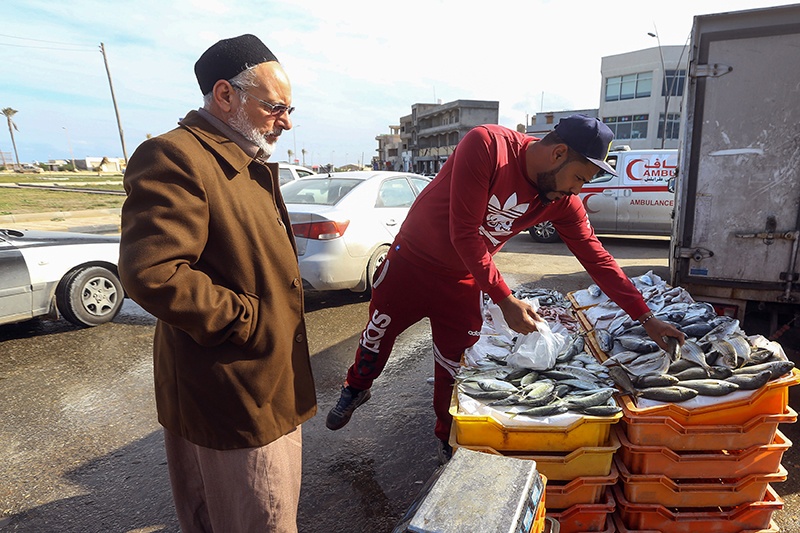
TRIPOLI: Residents of Libya's capital have received news of a ceasefire with a mix of relief and skepticism after more than nine months of deadly fighting on the edges of Tripoli. "The truce is welcome, of course. But at what cost? So many lives lost for nothing," said pharmacist Maysa Barakat.
"I don't believe that those who've lost a son, a father, a brother or a husband will just say 'okay, it's over, let's move on'," she added. "Bloodshed among Libyans has stained our hope for a good and prosperous future for our children." The empty streets of Libya's capital Tripoli were strangely silent yesterday as the head of Libya's UN-recognized government, Fayez Al-Sarraj, said his government has accepted a ceasefire deal with renegade commander Khalifa Haftar to prevent more bloodshed in the country.
The ceasefire called by Turkey and Russia came into force on Sunday. Badly damaged buildings and overturned cars were evidence of the fighting that has taken place since Haftar launched an offensive to capture Tripoli from the GNA in early April last year
The heads of Libya's warring factions signed in Moscow a ceasefire deal, after eastern-based military strongman Khalifa Haftar launched an offensive last April to seize the capital from a UN-recognized Government of National Accord. GNA head Fayez Sarraj, speaking after a ceasefire took effect at midnight Sunday, urged Libyans to "turn the page on the past". Tripoli banker Karima Al-Badri said the truce deal meant she could "breathe a sigh of relief".
"Although we know that this is just the beginning of a long process to come to some sort of a sustainable agreement, at least we have new hope," she said. But the first day of the ceasefire was marred by several incidents of violence, with each side accusing the other of violations.
Since the fall and killing of Muammar Gaddafi in a 2011 revolt plunged Libya into a complex, violent power struggle, Haftar has spent years building up his power. His troops, renamed the Libyan Arab Armed Forces (LAAF) from the previously self-styled Libyan National Army, now control much of the country's east and south. But their offensive against pro-GNA armed groups in Tripoli last spring quickly became bogged down on the outskirts of the capital.
Doubts over truce
Fatima Al-Taher, a lecturer at the University of Tripoli, voiced doubts that the ceasefire would hold. "My fear would be retaliation from both sides. The problem is that the East has fought so hard for so long that, unless Haftar (wins a) leading position where he would have some sort of power, he will not stop," she said.
Haftar, whose rivals accuse him of wanting to establish a military dictatorship, says his aim is to oust "terrorist groups" from the capital. The battle for Tripoli has killed more than 280 civilians and 2,000 fighters as well as displacing tens of thousands, according to the UN.
Mahmoud al-Kahili, who fled his home with his wife and two-year-old son as Haftar's forces approached and has been staying with his brother in the capital's eastern district of Tajoura, remains pessimistic. He did not hide his pessimism about returning to live there any time soon, but hoped the pause in fighting would allow him to go home and gather his belongings.
"I don't trust that the ceasefire will last long," he said. "Both sides have accepted, but neither is convinced that they can reach a solution through dialogue." "The fighting has paused temporarily but they will regroup their forces and the fighting will start again, even more intensely than before." Salem el-Haddar, a father of five, was another of those forced to flee his home early on in the offensive.
"We have waited so long for this ceasefire, which shows the despair on both sides," he said. Salem shares a two-storey house with a friend in Enjila, a town near Janzour (15 kilometres or nine miles west of Tripoli), where hundreds of displaced families have sought refuge. "We're hoping politicians will quickly reach a political solution to bring an end to the crisis so we can safely go home," he said. "We're tired… and our savings have totally run out." - Agencies









